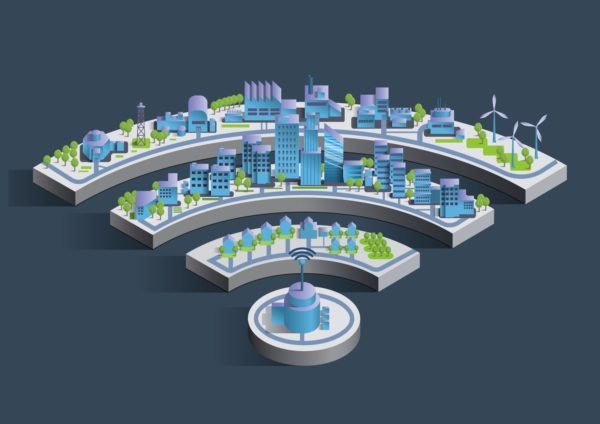
The recent internet of things movement has been defined by the development and connection of advanced technological devices, platforms and systems to end users. This change in the technology landscape will culminate with the creation of smart cities - large scale urban areas with unprecedented levels of connectivity and technological advancements utilised by its inhabitants. In recent times a critical element in the development of smart cities has seen significant improvements, bringing us ever closer to the realisation of the smart city concept.
Smart city projects are characterised by the widespread use of technology to connect devices, platforms and things. This connectivity can be provided by any number of carriers or service providers. However the smart city concept is meaningless unless a reliable, secure and robust connectivity infrastructure can be built and maintained in these smart cities.
The newest iterations of enterprise wireless solutions have made notable improvements in managing their previous shortcomings such as signal fade outs and interference whilst reducing the costs of ownership, all of which have proven to be obstacles in providing smart city connectivity. The smart city archetype is defined by the constant connectivity of users, platforms and devices meaning that this connectivity is of pivotal importance in the success of these cities of the future.
Enterprise wireless solutions constitute the default medium for connectivity today, carrying approximately half of all internet traffic. However the benefits to be realised from large scale connectivity within urban areas are still limited by a myriad of factors. The primary limiting factor facing smart cities lies in the ability to provide a fast, uniform user experience for disparate users scattered across cities. Service providers may provide fast connectivity speeds in coverage areas however such an experience is difficult to provide for all users, such as those inside buildings or availing of transportation such as underground rail systems. The current frequency of wireless transmission implies that objects can interfere in transmissions leading to the proliferation of areas of reduced connectivity strength.
As smart cities are characterised by the constant connectivity of users to the network this eliminates the possibility of switching between online and offline user experiences. Subsequently the solution to this issue lies in developing significant improvements in enterprise wireless broadcasting technology and access points.
Previous generations of enterprise wireless access points utilised a 360 degree broadcast pattern from an access point. New ones leverage directional beam arrays focused within a 15° spread. New generation access points also now detect devices within their networks and optimise the best transmission path to these devices on the network. Through a combination of smart beam technology and advanced algorithms, new generation enterprise wireless access points ensure that there are fewer incidents of signal loss for users and less exposure to interference from other networks.
These improvements in connectivity driven by enterprise wireless solutions are not to be underestimated. These innovative new generation enterprise wireless solutions, through facilitating the development of a secure, scalable, smart city wireless experience, bring us one step closer to the smart city of the future.
Congratulations @todayintech! You have completed some achievement on Steemit and have been rewarded with new badge(s) :
Click on any badge to view your own Board of Honor on SteemitBoard.
For more information about SteemitBoard, click here
If you no longer want to receive notifications, reply to this comment with the word
STOPYes that's all very well but consider the down side.... see my posts on why we should be awake to the underlying results of all this - https://steemit.com/news/@davemanchester/smarter-cities